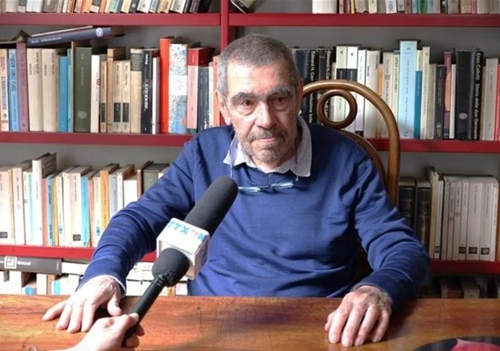Having spent many years working in Hanoi since late 1972, Loche felt the Vietnamese people’s sincere and profound affection toward their leader, affectionately called “Uncle” by the entire nation.
    |
 |
|
Massimo Loche, an Italian former war correspondent in Vietnam |
He regretted having never met President Ho Chi Minh in person, but proudly recalled joining thousands of Italian youth in chanting the leader's name during numerous solidarity demonstrations. The journalist also shared his pride in having attended the inauguration ceremony of the Ho Chi Minh Mausoleum in Hanoi, and in being able to pay respect to the late leader there on multiple occasions.
Loche noted that during his long journey to seek a path for national salvation, Nguyen Ai Quoc, an alias of Ho Chi Minh at that time, came to many countries, including Belgium, Germany, Switzerland, and Italy. In the early 1930s, he worked at Antica Trattoria della Pesa, a restaurant in Milan where a monument to him has been placed since 2012.
After Vietnam declared independence on September 2, 1945, its experience with socialism attracted significant interest from the left-wing intellectuals in Italy. This interest grew even more as Vietnam defended its right to self-determination against the attacks of French colonialists and later U.S. imperialists.
During the fiercest phases of the war against imperialism, President Ho Chi Minh, as well as General Vo Nguyen Giap, became a symbol of resistance for oppressed peoples across Asia, Africa, and Latin America, then referred to as the Third World, in their struggle for liberation from colonialism and imperialism.
According to Loche, many people in Italy compared Uncle Ho to Giuseppe Garibaldi, the hero who fought for the unification of Italy in the 19th century.
The journalist concluded that nearly a century has passed, and while circumstances have changed, the information and memories of President Ho Chi Minh's time in Italy remain incredibly valuable. With his noble and humanistic character, along with the unique appeal of a man driven by grand ideals, burning aspirations, and an unyielding will to find the path to independence and freedom for the Vietnamese people, the Ho Chi Minh style was formed – a style that later became well-known and admired by people around the world.
Source: VNA